I am trying to find the unique solution to the following equation using Matlab
norm(a,2)=0.11
when x is a variable and a=[x abs(1/x);x+1 1/x]. b is the exact formulation of norm(a,2), which I have gained:
syms x
a=[x abs(1/x);x+1 1/x];
b = norm(a,2)
b = max(abs(2*x + x*abs(x)^2 + 2*x*abs(x)^4 + abs(x)^4 + x^2*abs(x)^2 - (4*x*abs(x)^5 + 2*x*abs(x)^6 + 4*x*abs(x)^8 + abs(x)^8 + 8*x^2*abs(x)^3 + x^2*abs(x)^4 + 4*x^3*abs(x)^3 + 2*x^3*abs(x)^4 + 6*x^2*abs(x)^6 + x^4*abs(x)^4 + 4*x^3*abs(x)^6 + 4*x^2*abs(x)^8 + 4*x^2)^(1/2))/(2*abs(x)^3), abs(2*x + x*abs(x)^2 + 2*x*abs(x)^4 + abs(x)^4 + x^2*abs(x)^2 + (4*x*abs(x)^5 + 2*x*abs(x)^6 + 4*x*abs(x)^8 + abs(x)^8 + 8*x^2*abs(x)^3 + x^2*abs(x)^4 + 4*x^3*abs(x)^3 + 2*x^3*abs(x)^4 + 6*x^2*abs(x)^6 + x^4*abs(x)^4 + 4*x^3*abs(x)^6 + 4*x^2*abs(x)^8 + 4*x^2)^(1/2))/(2*abs(x)^3))^(1/2)
I have tried solve() and the following is the result:
solve(b==0.11,x)
Warning: Cannot find explicit solution.
ans = Empty sym: 0-by-1
Any help regarding the suitable method to solve the above equation will be appreciated.
